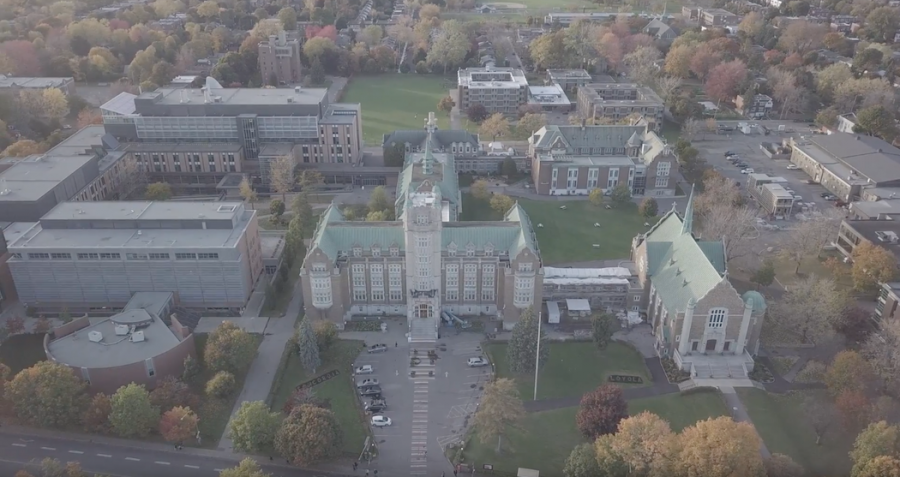Concordia is Running Out of Space in Psychology Classes
Psychology Students Say They Can’t Get Into Mandatory Classes
Psychology students are struggling to make it into their own classes.
Enrolling in the classes Shayla Rowat and Petros Maniatos need to meet program requirements has proven more difficult than usual. Rowat and Maniatos are both second year students specializing in psychology.
Currently, they’re in 300-level classes with several first year students.
“We still have to get them done eventually, but it wasn’t our particular plan,” Maniatos said. They wanted to start taking 400-level courses this semester, but by the time they made their schedules, all the courses were full.
Meaghan Pawlowsky, a third-year student, echoed Maniatos’ sentiment. “All classes that piqued my interest were already full when my enrolment time and date were activated,” she said. Because of this she had to enrol in a class that she wasn’t interested in.
“I made my schedule a little late, but when I started the semester I officially had one course. I was on the wait-list for three courses,” Maniatos added, “I bank a lot on people dropping out.”
There was one wait-list that was still accepting students: Concepts and Categories. “We had to wait until after the first week of school to get in,” Rowat explained.
The special thing about several 400 level classes, including this one, is that it’s shared by both undergraduate and graduate students. For graduate students, it’s considered a 700 class.
Graduate students have different competencies, but everyone is studying the same material. This led Rowat to wonder if the course is easier than it should be for graduate students, or harder than it should be for undergraduate students.
The course outline for undergraduate students states that the grading is divided into three exams worth 90 per cent of the final mark and the remaining 10 per cent comes from participation.
Graduate students are graded on an experimental project worth 75 per cent, class participation worth 20 per cent, and teaching a 30 minute review class for undergraduate students worth 10 per cent.
This elementary school-esque merging of classes isn’t the only thing bothering psychology students. The lecture halls seldom have empty seats, and because of the large class sizes, “engagement is generally pretty low. People don’t generally answer questions,” Maniatos said.
However, the anonymous source would disagree. Over their three years as a psychology student, they did not notice an increase in class size.
Registering for next semester has proven just as difficult as the current one, because “even for winter all of the wait-lists are full,” Rowat added, “getting courses has been very difficult.”
Maniatos’ winter schedule is empty because all classes are full. Instead, he’s taking “random electives” instead of psychology courses. Pawlowsky has had to take another 300 level course to fill their schedule even though she has completed the requirements for Tier 1.
Because they are both specializing in psychology, the majority of Rowat’s and Maniatos’ credits are alloted to psychology courses. They only have 30 credits available from electives, and when that runs out they might have to do electives for nothing.
However, this could be necessary for them to maintain their status as full-time students. They don’t want to take unnecessary electives, but they also aren’t getting into the psychology courses they need to take.
This lack of class space also affected undergraduate students who want to specialize in a specific subfield of psychology or prepare for their masters.
“More often than not you’re going to want to take classes related to that subfield. We don’t have that option,” Maniatos said.
Some of his classmates ended up going to administration and asking for an exemption or a special allowance to join a class.
The administration hasn’t sent any emails or reached out to psychology students about the situation. Rowat admits at this level of education students are expected to be more responsible and reach out to higher-ups to remedy the problem. But “it’s also [the] administration’s responsibility to offer us classes that we can take,” she added.
Next year, Rowat is hoping classes won’t be overbooked and she won’t be wait-listed for classes she has to take. Rowat and Maniatos agree there are too many students and not enough teachers, but there also aren’t enough classrooms.





_600_375_90_s_c1.jpg)

